Learning and knowledge sharing are fundamental to the LHSS Project. We invite you to search LHSS knowledge products and resources for the latest approaches, insights, and learning in the field of integrated health systems strengthening.
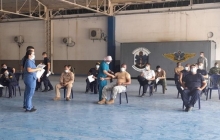
LHSS supports scale up and adaptation of existing vaccination programs for COVID-19 while also strengthening countries’ capacity to manage other public health efforts in the future.
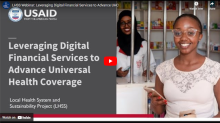
During this webinar, we present new global evidence on how DFS can improve the coverage, equity, efficiency, quality, and responsiveness of health services.
This Year 2 Quarter 3 Report (April-June 2021) was prepared for USAID and provides a progress update for all annual work plan activities.
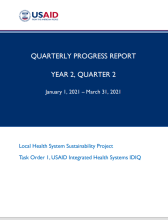
This Year 2 Quarter 2 Report (Jan-Mar 2021) was prepared for USAID and provides a progress update for all annual work plan activities.
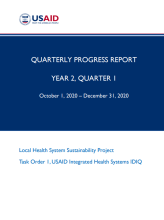
This Year 2 Quarter 1 Report (Oct - Dec 2020) was prepared for USAID and provides a progress update for all annual work plan activities.
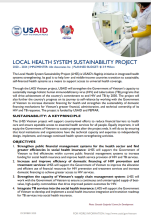
LHSS Vietnam works to strengthen the Government of Vietnam’s capacity to sustainably manage holistic HIV and TB programs that will drive achievement of the country’s commitment to end HIV and TB by 2030.
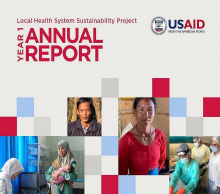
Report highlighting early lessons and successes from the LHSS Project’s first year (August 2019-August 2020)
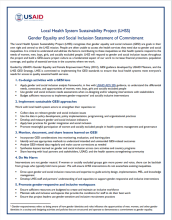
Guided by USAID’s Gender Equality and Female Empowerment Policy (2012), GESI guidance developed by USAID Missions, and the LHSS GESI Strategy, LHSS is committed to implementing five GESI standards to ensure that local health systems meet everyone’s needs for access to quality essential health services.
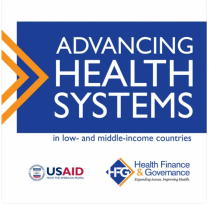
Health governance is foundational to strengthening health systems around the world, but it’s something that many development practitioners struggle to conceptualize. In this episode, we talk about why governance is so difficult, consider how to apply a governance lens, and learn from an example of HFG’s governance work in Vietnam.

In this episode, we introduce the major insurance models being implemented around the world, discuss some of the specific challenges LIMCs face, and learn about what two countries are doing to create an insurance system that is equitable, efficient, and financially sustainable.

The digital revolution can offer solutions to many health system constraints: increasing access to information in far flung villages, speeding information to decision-makers in real-time, giving over-burdened health workers tools for training, case management, and support; mobilizing communities to hold governments accountable for quality services. But how can development practitioners realize these positive outcomes?

What happens to health systems in low- and middle-income countries when big international donors change their plans, while demand for health services within the country continue to rise? This episode explores the concept of Domestic Resource Mobilization--DRM.
